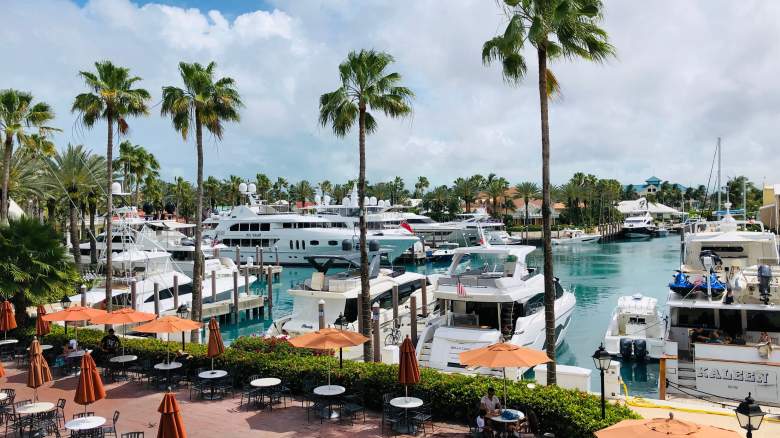
Getty View of the marina of the Atlantis hotel in Nassau, Bahamas on May 1, 2019.
Effective Wednesday, the Bahamas will be closing its borders to U.S. citizens amid a spike in COVID-19 infections since the country opened its borders to international travelers just three weeks ago. Prime Minister Hubert Minnis made the announcement on Sunday, adding that Bahamasair, the country’s national carrier, would no longer be operating flights to the U.S. Outgoing commercial flights will be permitted only to accommodate visitors who are already scheduled to leave after Wednesday.
The country’s seaports and airports remain open to visitors from Canada, the United Kingdom and the European Union but travelers must show a negative COVID-19 RT-PCR test from an accredited laboratory no longer than 10 days before arriving in country. Private international flights and pleasure boats are still permitted. RT-PCR tests are molecular tests that are generally considered the most accurate in COVID-19 testing.
Here’s what you need to know:
Bahamas Closed Its Borders to Americans Following a Spike in Cases, Especially on the Island of Grand Bahama
In Minnis’ address to the country, he said, “Regrettably, the situation here at home has already deteriorated since we began the reopening of our domestic economy. It has deteriorated at an exponential rate since we reopened our international borders.” He said that as of July 19, the Ministry of Health in the country confirmed 15 new cases, bringing the total to 153. There have been 49 new cases since the borders reopened to international travelers on July 1, with 31 of those recorded on the island of Grand Bahama.
According to the Miami Herald, Grand Bahama had previously been coronavirus-free for over two months and the island is still in recovery from Hurricane Dorian, which caused extensive damage to the island in 2019.
Florida is one of the Bahamas’ top tourist markets but has recently become one of the U.S. epicenters for the virus, with 12,478 new cases on Sunday, the Hill reported.
In announcing these measures, Minnis said:
Our current situation demands decisive action, if we are to avoid being overrun and defeated by this virus. We cannot allow our hospitals to be overrun. Many priorities must be balanced, be they health, social and economic. Chief amongst these though is the health. We cannot risk the death of Bahamians and our residents. We must be resolved in our collective willingness to save lives.
In his address, Minnis also outlined preventative measures on the island to reduce the risk of the virus spreading. Effective today, all public and private beaches will be closed on the islands of New Providence, where Nassau is located, Paradise Island, Rose Island, Athol Island and surrounding cays. There will also be a curfew on Grand Bahama from 7 p.m. to 5 a.m., with a closure of parks, beaches and indoor dining.
“If efforts to decrease the number of cases are unsuccessful, other restrictive measures may be recommended, including a lockdown beginning Friday the 24th of July,” Minnis added.
The European Union Also Left the U.S. Off Its List of Accepted Visitors
The Bahamas isn’t the only country restricting travel from the U.S. in light of its high COVID-19 numbers. On July 1, the European Union opened its borders to international travelers from 14 countries that are allowed entry for tourism, but the U.S. didn’t make the list. The EU will be revisiting the list on a regular basis, but it’s unlikely that Americans will be able to travel there until there is a significant reduction in COVID-19 numbers in the country.
NPR reported that the EU bases its list on a few factors, including the number of new cases in a particular country in the last 14 days as well as the case rate per 100,000 inhabitants, which should be “close to or below the EU average.”
READ NEXT: When Is the Second Wave of Coronavirus? Will It Happen?
